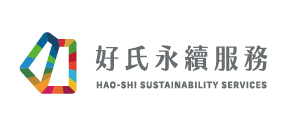Conserve and sustainably use the oceans, seas and marine resources for sustainable development
保育及永續利用海洋與海洋資源,以確保永續發展
14.1
2025年前,預防及大幅減少各類型的海洋污染,尤其來自陸上活動,包括海洋廢棄物和營養物污染
By 2025, prevent and significantly reduce marine pollution of all kinds, in particular from land-based activities, including marine debris and nutrient pollution
14.2
2020年前,永續管理及保護海洋和海岸生態系統,避免產生重大負面影響,包括加強海洋恢復力,並採取復原行動,使海洋保持健康、物產豐饒
By 2020, sustainably manage and protect marine and coastal ecosystems to avoid significant adverse impacts, including by strengthening their resilience, and take action for their restoration in order to achieve healthy and productive oceans
14.3
減緩並改善海洋酸化的影響,包括透過在各層級加強科學合作
Minimize and address the impacts of ocean acidification, including through enhanced scientific cooperation at all levels
14.4
2020年前,有效規範捕撈活動,終結過度漁撈和非法、未通報、未受管制(IUU)和破壞性捕撈,並實施科學管理計畫,在最短時間內恢復魚群數量,至少到達依物種特性,可產生最大永續產量的水準
By 2020, effectively regulate harvesting and end overfishing, illegal, unreported and unregulated fishing and destructive fishing practices and implement science-based management plans, in order to restore fish stocks in the shortest time feasible, at least to levels that can produce maximum sustainable yield as determined by their biological characteristics
14.5
2020年前,依各國和國際法規,並基於現有的最佳科學資訊,保護至少10%的沿海與海洋區域
By 2020, conserve at least 10 per cent of coastal and marine areas, consistent with national and international law and based on the best available scientific information
14.6
2020前,禁止導致產能過剩和過度捕撈的漁業補助,取消助長IUU漁撈的補貼,並避免再制定新的相關補助。同時承認世界貿易組織漁業補助談判協定中,須包含對於開發中國家和最低度開發國家(LDCs)合理、有效的特殊及差別待遇
By 2020, prohibit certain forms of fisheries subsidies which contribute to overcapacity and overfishing, eliminate subsidies that contribute to illegal, unreported and unregulated fishing and refrain from introducing new such subsidies, recognizing that appropriate and effective special and differential treatment for developing and least developed countries should be an integral part of the World Trade Organization fisheries subsidies negotiation
14.7
2030年前,提高海洋資源永續使用對小島嶼發展中國家(SIDS)與LDCs的經濟效益,包括透過永續管理漁撈業、水產養殖業與觀光業
By 2030, increase the economic benefits to Small Island developing States and least developed countries from the sustainable use of marine resources, including through sustainable management of fisheries, aquaculture and tourism
14.a
加強科學知識、發展研究能力、轉移海洋技術,並考慮政府間海洋學委員會(Intergovernmental Oceanographic Commission)制定的海洋科技轉讓之標準與原則,改善海洋健康,促進海洋生物多樣性對開發中國家發展的貢獻,特別是對於SIDS和LDCs
Increase scientific knowledge, develop research capacity and transfer marine technology, taking into account the Intergovernmental Oceanographic Commission Criteria and Guidelines on the Transfer of Marine Technology, in order to improve ocean health and to enhance the contribution of marine biodiversity to the development of developing countries, in particular small island developing States and least developed countries
14.b
提供小規模人工漁撈業者取得海洋資源與進入市場的管道
Provide access for small-scale artisanal fishers to marine resources and markets
14.c
根據《聯合國海洋法公約(UNCCLOS)》針對海洋及海洋資源保育和永續利用提出的合法框架,制定國際法規落實保育和永續利用海洋資源,如同《我們希望的未來(The Future We Want)》第158段所述
Enhance the conservation and sustainable use of oceans and their resources by implementing international law as reflected in United Nations Convention on the Law of the Sea, which provides the legal framework for the conservation and sustainable use of oceans and their resources, as recalled in paragraph 158 of “The future we want”
